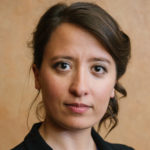Symbols, Speech, and Security

Elizabeth A. Clark is Associate Director, International Center for Law and Religion Studies and Regional Advisor for Europe at the J. Reuben Clark Law School, Brigham Young University
I recently had the opportunity to be part of a panel at a conference sponsored by the International Association of Religion Journalists. I was particularly struck by how the difficult challenges journalists face in many parts of the world – prison terms, lawsuits, harassment by displeased religious or civic leaders – paralleled those of religious believers in their countries, particularly religious minorities. This similarity shouldn’t have been surprising. Research has shown a strong correlation between restrictions on religious freedom and decreased access to a large number of other fundamental rights and economic goods, including freedom of speech.[1] As Nobel-prize winning economist Amartya Sen notes, freedoms tend to come as “bundled commodities.”[2] (more…)


